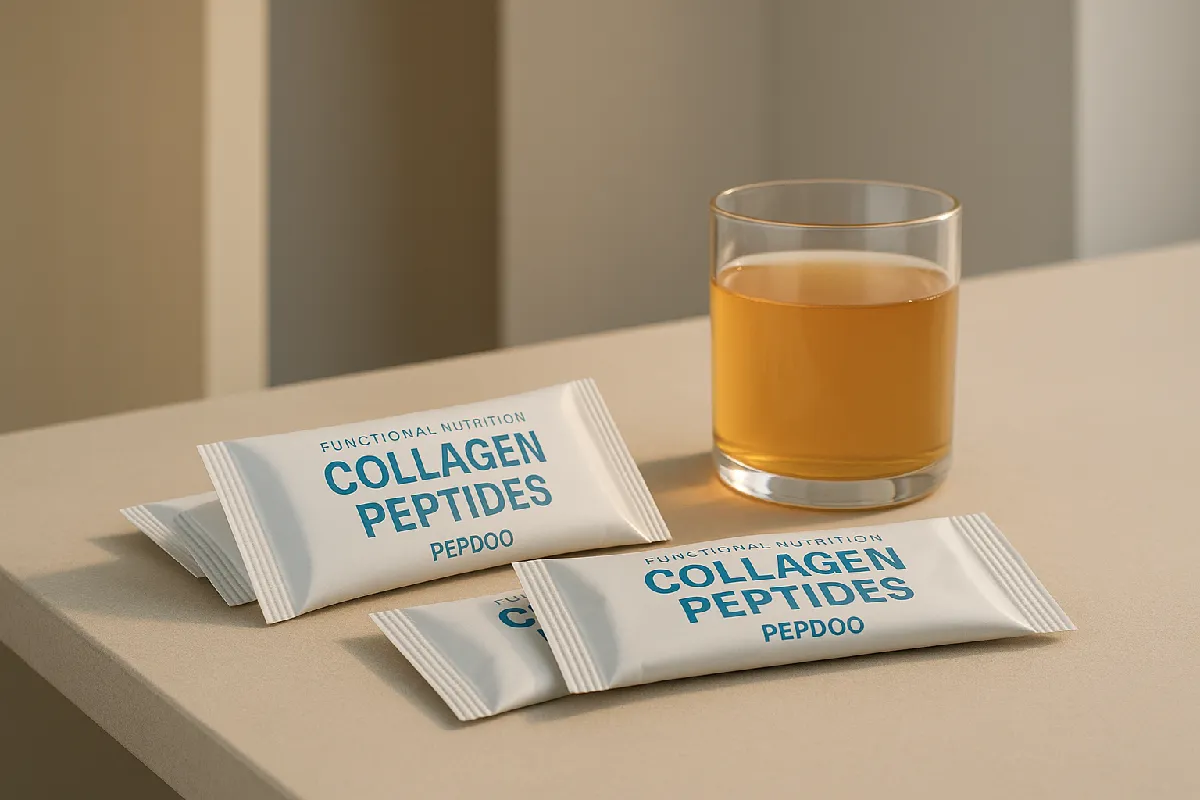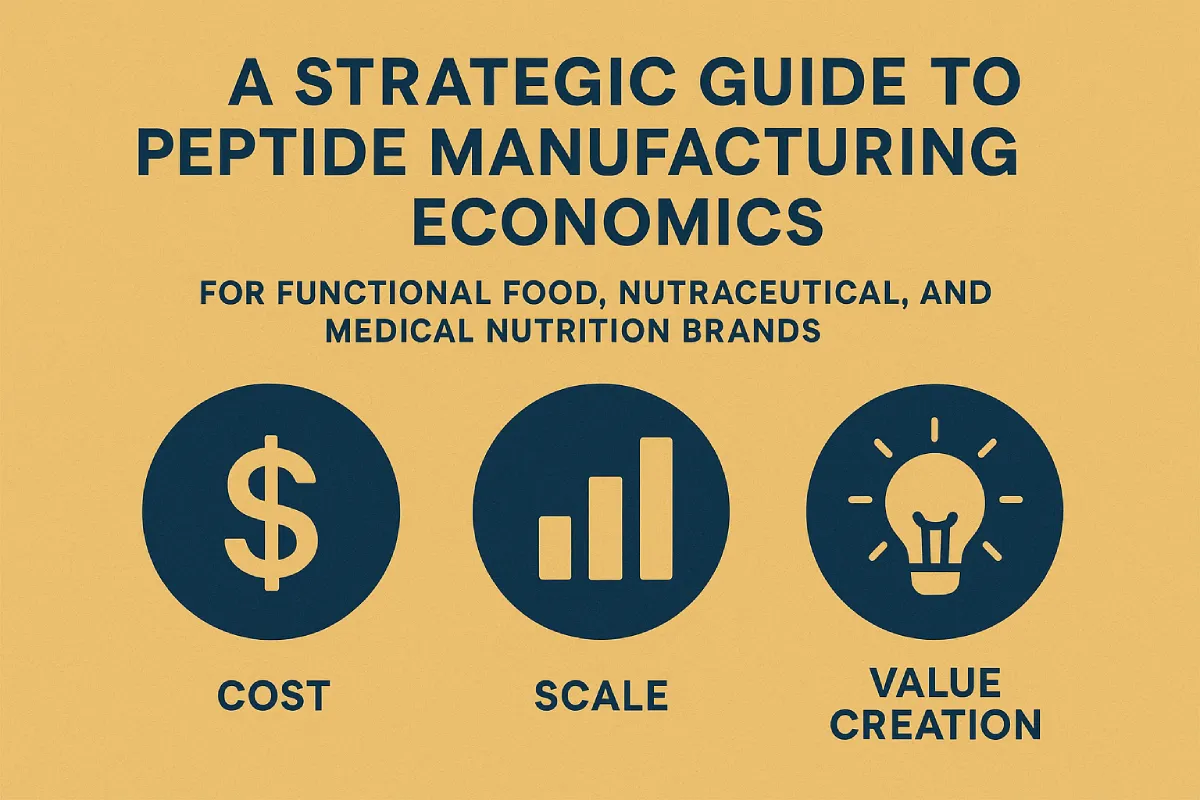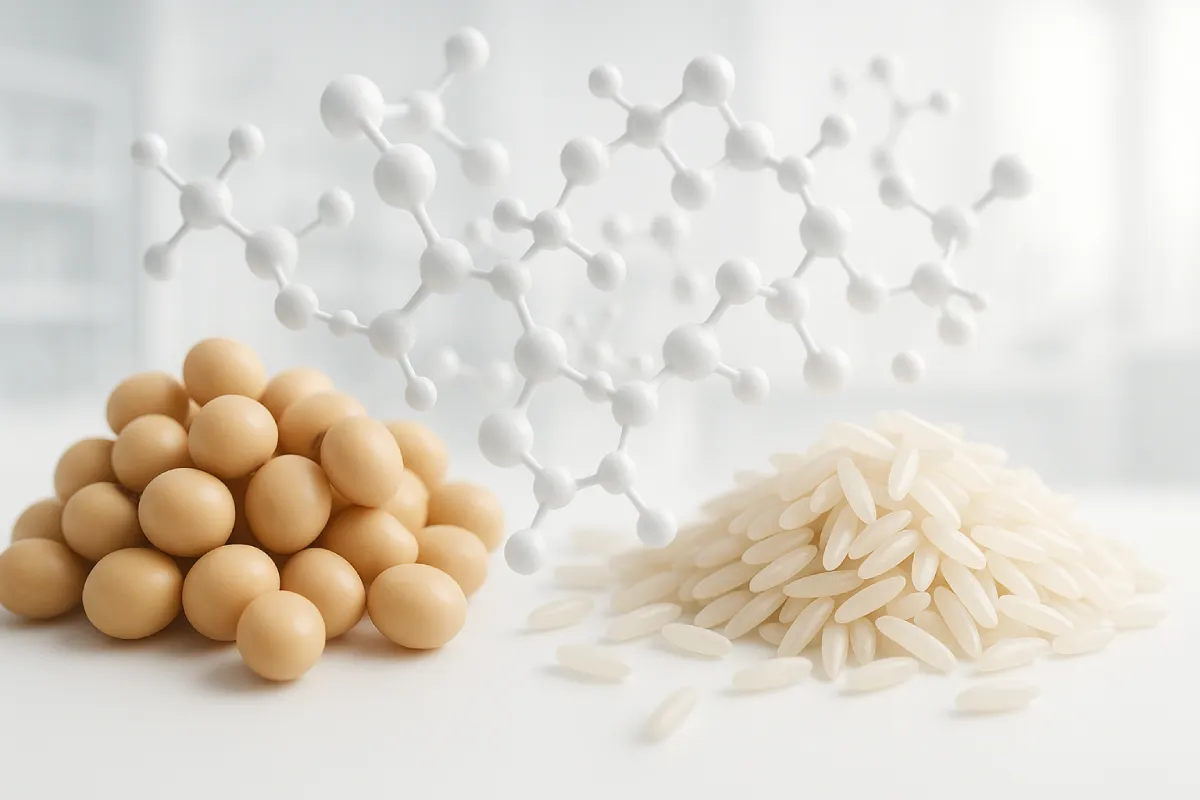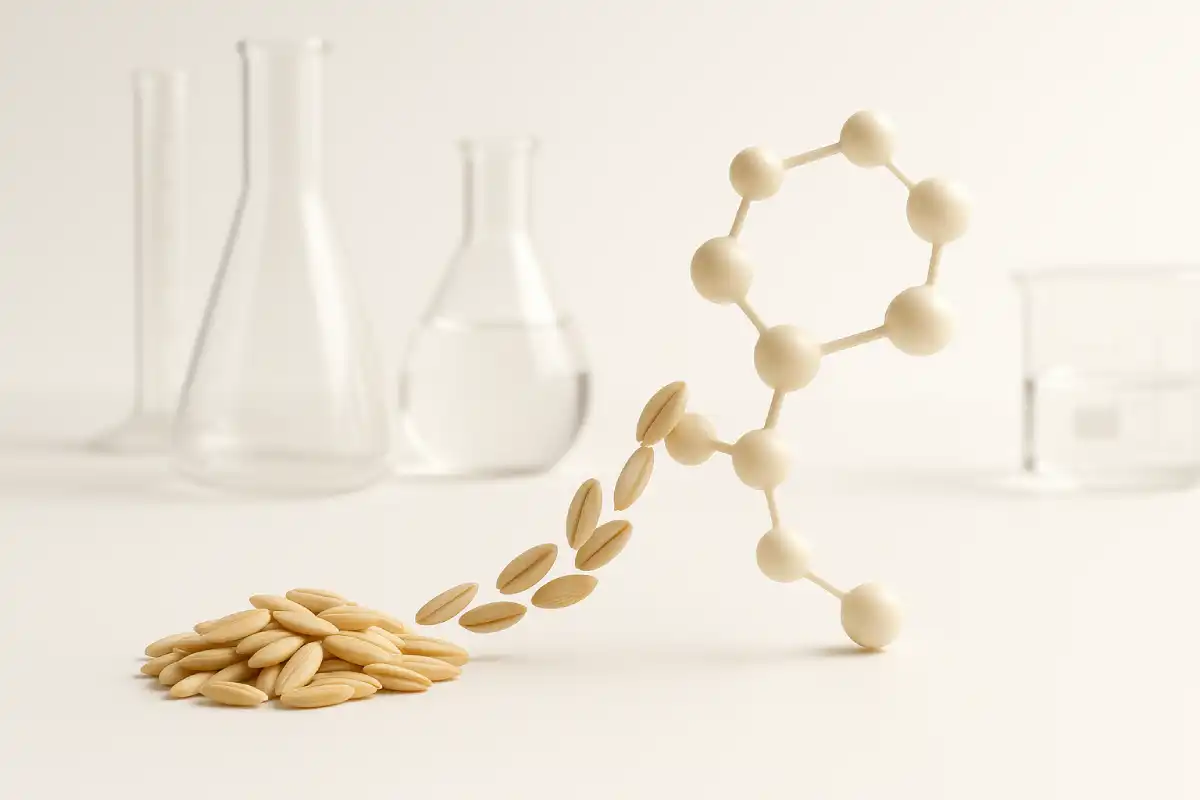Driving Preventive Health: How PEPDOO® Peptides Target Metabolic Syndrome Risks
Metabolic syndrome (MetS) has emerged as a major global health concern, characterized by a cluster of interrelated conditions—abdominal obesity, hypertension, dyslipidemia, and insulin resistance. With rising sedentary lifestyles, poor dietary patterns, and population aging, MetS now affects over one billion people worldwide and significantly increases the risk of type 2 diabetes, cardiovascular disease, and stroke [1]. While pharmaceuticals can address individual symptoms, the preventive nutrition approach is gaining momentum as a safer, more sustainable solution. At the heart of this shift are bioactive peptides—short-chain amino acid sequences with targeted physiological benefits.
As a full-process peptide manufacturer, PEPDOO® specializes in designing and producing formulation-ready peptides for preventive metabolic health applications. This article explores the multifaceted role of peptides in mitigating MetS and why B2B brands are increasingly integrating these ingredients into their next-generation product pipelines.
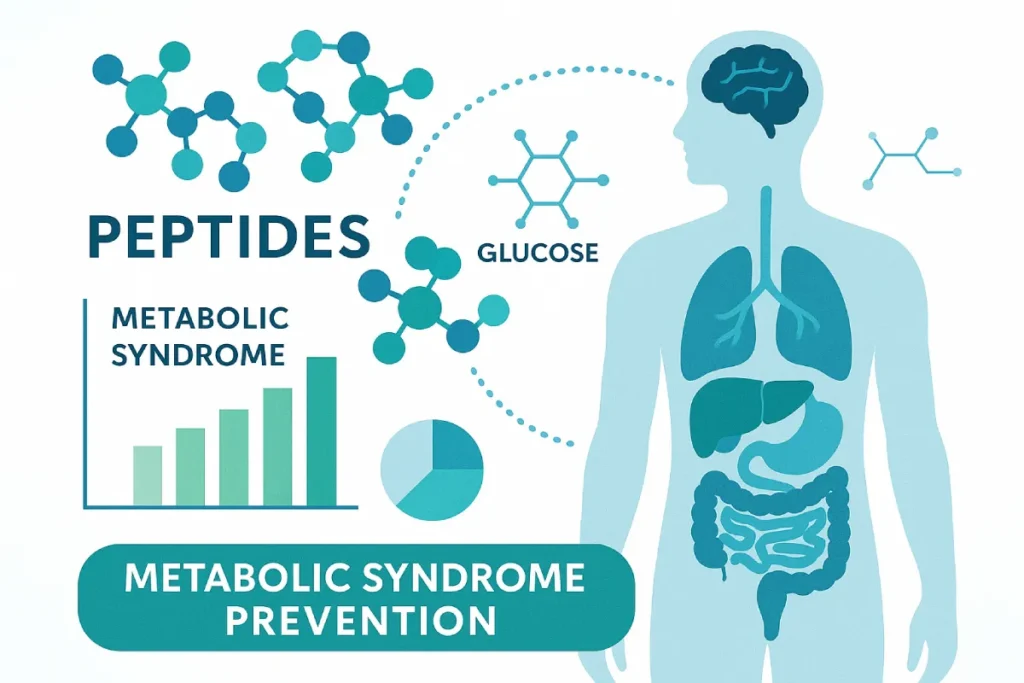
Understanding Metabolic Syndrome: A Multi-Target Challenge
Metabolic syndrome is diagnosed when three or more of the following are present: elevated waist circumference, high triglycerides, low HDL cholesterol, high blood pressure, and fasting hyperglycemia [2]. Each factor contributes to systemic inflammation, oxidative stress, and insulin resistance—creating a self-reinforcing cycle that leads to chronic disease. The multifactorial nature of MetS requires multi-target intervention, which bioactive peptides are uniquely positioned to deliver.
What Are Bioactive Peptides?
Bioactive peptides are functional fragments derived from food or natural protein sources through enzymatic hydrolysis. Unlike intact proteins, these short peptides (typically <10 amino acids) can interact directly with cellular pathways and receptors, offering high bioavailability and targeted physiological effects. Depending on their amino acid sequence, bioactive peptides can exert anti-obesity, antihypertensive, antidiabetic, lipid-lowering, antioxidant, and anti-inflammatory activities [3].
At PEPDOO®, we apply proprietary enzymatic hydrolysis techniques combined with membrane filtration to obtain peptides with specific molecular weights (e.g., <1 kDa, 1–3 kDa) optimized for different metabolic health outcomes.
Mechanisms of Action: Peptides vs. Metabolic Syndrome
1. Weight Management & Lipid Metabolism
Peptides contribute to weight control via multiple mechanisms: suppressing appetite, inhibiting fat absorption, enhancing lipid oxidation, and regulating adipocyte differentiation. For instance, pea and soy-derived peptides have demonstrated AMP-activated protein kinase (AMPK) activation, which promotes fatty acid oxidation and reduces lipogenesis [4]. Casein peptides have also shown potential in lipase inhibition and promoting satiety hormones such as CCK and GLP-1.
PEPDOO® offers customized low-MW peptides for use in high-protein meal replacements, RTD fat-control beverages, and satiety-enhancing formulas.
2. Blood Pressure Control through ACE-Inhibitory Peptides
Angiotensin I-converting enzyme (ACE) plays a critical role in blood pressure regulation. Peptides that inhibit ACE, particularly those with sequences like Val-Pro-Pro (VPP) and Ile-Pro-Pro (IPP), have been clinically shown to reduce systolic and diastolic pressure in hypertensive individuals [5]. Dairy and fish protein hydrolysates are rich sources of these peptides.
PEPDOO® produces ACE-inhibitory peptides with standardized bioactivity units, ideal for anti-hypertension formulations requiring measurable dose-response profiles.
3. Insulin Sensitivity & Glucose Control
Bioactive peptides can enhance insulin action and reduce postprandial glucose spikes through several pathways. DPP-IV inhibitory peptides prolong the activity of GLP-1, a key incretin hormone that improves insulin secretion. Meanwhile, other peptides promote GLUT4 translocation in skeletal muscle, increasing glucose uptake [6].
Our in-house peptide screening platform has identified sequences that support insulin sensitivity, available for prediabetic or diabetic product formulations.
4. Lipid Profile Modulation
Certain peptides help modulate plasma lipid profiles by influencing hepatic lipid metabolism and reducing LDL cholesterol. These effects are mediated via PPARα and PPARγ activation, which regulate fatty acid oxidation and cholesterol transport [7]. Egg, soy, and marine peptides have shown efficacy in lowering total cholesterol and triglycerides in preclinical studies.
5. Anti-Inflammatory and Antioxidant Effects
Low-grade chronic inflammation and oxidative stress are hallmarks of MetS. Antioxidant peptides neutralize reactive oxygen species (ROS), while anti-inflammatory peptides downregulate cytokines such as TNF-α and IL-6 [8]. These effects help preserve endothelial function, reduce insulin resistance, and prevent cellular damage.
PEPDOO® offers peptide ingredients with validated antioxidant capacity (DPPH, ABTS, ORAC), tested under real formulation conditions.
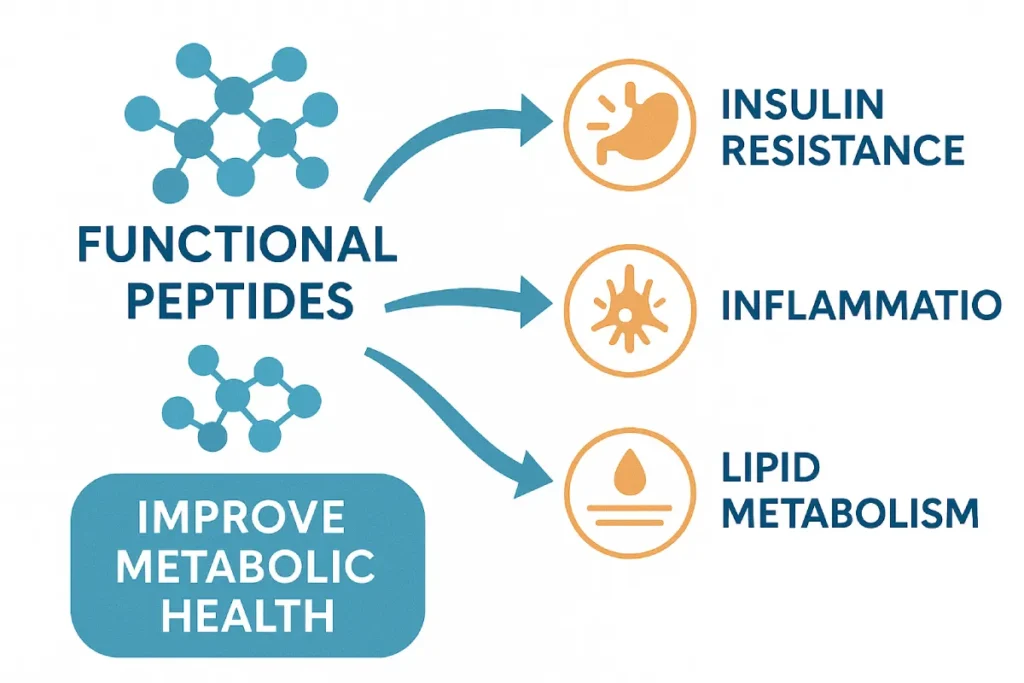
Sourcing Functional Peptides: Natural & Scalable Options
| Source Type | Examples | Key Functions |
|---|---|---|
| Dairy | Casein, whey | ACE inhibition, satiety, glucose control |
| Marine | Fish skin, krill, scallop | Anti-inflammatory, antioxidant, lipid-lowering |
| Plant-Based | Pea, soy, hemp seed, faba bean | AMPK activation, cholesterol modulation |
| Novel Sources | Rice, pumpkin seed, algae | Vegan-friendly, clean-label options |
From Ingredient to Finished Format: Versatile Applications
Metabolic health peptides can be integrated into multiple delivery systems:
- RTD functional beverages
- Sachet powders and high-protein shakes
- Capsules and softgels
- Nutrient bars and snack foods
PEPDOO® provides peptides with verified physical properties, ensuring consistent performance in manufacturing and storage.
Regulatory & Market Alignment
All peptide ingredients are produced in ISO22000 & HACCP-certified facilities. GRAS/EFSA-compliant documentation and full spec sheets are available. Suitable for clean-label, sugar-free, lactose-free, vegan or allergen-free claims.
Why Work with PEPDOO®: From Molecule to Market
- In-house enzymatic hydrolysis and molecular weight control
- Batch-level verification of peptide bioactivity and composition
- Technical documentation for registration and export
- Sample support and OEM/ODM collaboration for global partners
- R&D partnerships for clinical trials or functional claim development
Conclusion: Peptides Are the Future of Preventive Nutrition
As metabolic syndrome continues to rise, the need for natural, safe, and multi-functional ingredients becomes critical. Bioactive peptides offer a scientifically validated, regulatory-compliant solution for brands looking to enter or expand within the metabolic health space.
💊 Ready to Formulate Peptides for Metabolic Health?
As a full-range peptide manufacturer, PEPDOO® provides clinically validated, formulation-ready peptides targeting metabolic syndrome.
From insulin resistance to inflammation control, partner with us for R&D support, private labeling, or bulk supply.
FAQ
Peptides provide multi‑target activity—regulating glucose, blood pressure, lipid metabolism, and inflammation simultaneously. Their short-chain nature (<3 kDa) allows rapid absorption and direct interaction with metabolic pathways such as AMPK, ACE, and DPP‑IV [1].
Core functions include DPP‑IV inhibition (insulin support), ACE suppression (blood‑pressure control), AMPK activation (fat oxidation), satiety‑hormone modulation (GLP‑1, CCK), and antioxidant/anti‑inflammatory effects—addressing the four pillars of MetS.
Dairy (casein, whey), marine (fish skin, krill), plant‑based (soy, pea, hemp seed, faba bean), and novel sources (rice, pumpkin seed, egg white). Each carries unique peptide sequences for specific claims or dietary styles (vegan, allergen‑free).
Yes—produced under controlled enzymatic hydrolysis with defined MW ranges, plus verified bioactivity (ACE & DPP‑IV IC50, ORAC/DPPH). Each lot ships with a QC certificate and amino‑acid profile.
Our R&D team aligns your health target + dosage form with peptide source, MW cut, taste, and process stability. We can also craft custom hydrolysates for proprietary products.
Guidelines: 2–3 g/serving for ACE‑inhibitory RTDs, 3–5 g for satiety snacks, and 5–10 g in powder blends. We supply dose–response data and sensory benchmarks.
Low‑MW peptides retain >95 % activity after 135 °C/6 s UHT and show <5 % loss in spray‑drying. We provide stress‑test and shelf‑life data plus formulation tips (pH, water activity, antioxidants).
Absolutely—non‑GMO, vegan, lactose‑free grades with halal/kosher certificates are available. Allergen and origin statements support global clean‑label claims.
RTD beverages, sachet powders, capsules/softgels, nutrition bars, and gummies. PEPDOO® offers solubility optimization, flavor‑masking, and heat‑stability solutions for each.
Complete TDS, MSDS, amino‑acid & bioactivity dossiers for FDA GRAS, EFSA, CFDA or “Blue‑Hat” filings, plus claim‑substantiation packages and audit support.
Standard grades: MOQ 25 kg, lead time 10–15 working days. Custom hydrolysates: MOQ 100 kg, lead 4–6 weeks. Priority slots are available for strategic partners.
Yes—we run aseptic RTD lines (60–250 ml) and stick‑pack powder filling. Services include flavoring, label design, and co‑branding to fast‑track market launch.
In‑house enzymatic hydrolysis → membrane filtration → spray/freeze drying. QC covers microbiology, heavy metals, HPLC peptide mapping, and functional assays.
We offer 50–200 g pilot samples with COA, TDS, MSDS, plus formulation guidance. NDAs can be signed for confidential projects.
Your brand does. PEPDOO® signs NDAs and provides exclusive‑supply agreements (3–5 years) to safeguard your market differentiation.
References
- Grundy, S. M. (2008). Metabolic syndrome pandemic. Arteriosclerosis, Thrombosis, and Vascular Biology, 28(4), 629–636.
- Alberti, K. G., Zimmet, P., & Shaw, J. (2005). The metabolic syndrome—a new worldwide definition. The Lancet, 366(9491), 1059–1062.
- Korhonen, H., & Pihlanto, A. (2006). Bioactive peptides: Production and functionality. International Dairy Journal, 16(9), 945–960.
- Hartmann, R., & Meisel, H. (2007). Food-derived peptides with biological activity. Current Opinion in Biotechnology, 18(2), 163–169.
- Cicero, A. F. G., & Derosa, G. (2005). Dietary supplements for blood pressure control. High Blood Pressure & Cardiovascular Prevention, 12(1), 19–28.
- Nongonierma, A. B., & FitzGerald, R. J. (2015). Bioactive properties of milk proteins. Peptides, 73, 20–34.
- Zhang, Y., et al. (2010). Soy protein-derived peptides and cardiovascular health. Journal of Agricultural and Food Chemistry, 58(11), 7165–7171.
- Lee, J. H., et al. (2012). Antioxidant and anti-inflammatory activities of peptides. Food Chemistry, 135(2), 869–875.


